Long-billed Dowitchers! - 07 Apr 2012
It only took one play of its song to bring an angry Swamp Sparrow to my side of the marsh. It buzzed me, then flew to an open snag and proceeded to vibrate its wings and sing. I spent some time digiscoping the bird from 60' away, noticing that it was hard to freeze motion of its lower mandible while it sang its 'wet' trill. A few dozen ducks were in the unit, including American Coot, Bufflehead, Ruddy Duck, Lesser Scaup and Green-winged Teal.
The Lautenschlager Unit held several pairs of Northern Shovelers and Bufflehead.
Across the dike in the west part of the Bloody Run Unit a wet spot in the corn field hosted 9 Pectoral Sandpipers, several Killdeer, and several pairs of Green-winged Teal. All of the birds took off to the north, so I turned my attention to a pair of Bufflehead in the open water to my left. The male and female pair of birds were actively courting, preening and diving, but didn't seem to mind my presence. I was able to get some decent digiscoped images from 100'. A Song Sparrow spent a few minutes on the sign post nearby, so I took a few images from about 25'.
Good numbers of American Coot were still in the Mouillee Creek portion of the Humphries Unit. I headed north along the dike separating Bloody Run and Long Pond Units. An American Bittern was calling from the west edge of the Long Pond Unit, but I couldn't locate it. Another pair of Swamp Sparrows were chasing each other in the phragmites next to me, so I grabbed a few opportunistic photos w/ the 300/2.8 VRII.
I did manage a few flight shots, including one w/ the flock of Pectoral Sandpipers.
Blue-winged Teal numbers are steadily increasing, and will soon overcome the Green-winged Teal in numbers.
Near the NE corner of the Bloody Run Unit I found a Lesser Yellowlegs working the shoreline and mudflats. Lighting was perfect for some digiscoping from about 60'.
The north end of the Long Pond Unit held dozens of American Coot. This small mud spit is known simply as the "Isle of Coot".
I scanned the Vermet Unit for the other Osprey tower but was unable to see it from the Middle Causeway. I would later check the Port Sunlight Rd. nest and find a single Canada Goose (apparently) incubating egg(s) atop the large Osprey nest from last year.
A pair of Marsh Wrens singing in the phragmites along the north side of the Humphries Unit were the first ones of the year for me. I headed over and found two birds skulking along the edge. I'd hoped to digiscope one or both birds, but had to settle for a couple quick pics through the thick growth dried stalks.
They circled a few times and settled back down a few yards farther down the shoreline. I managed a few more photos of the birds as they moved west along the shoreline. The flushed, and I quickly grabbed the camera and grabbed a few flight shots as they flew back past me and disappeared to the north. I was able to hear their calls, a high-pitched "preeet-preeet" that confirmed their identity as Long-billed Dowitchers. Compare the call of the Long-billed Dowitcher w/ the call of Short-billed Dowitcher.
I rode up to the Banana Unit and Cell 3 to look for shorebirds. I noticed, however, that my rear tire was almost flat (again!). So I stopped and scoped the mudflats from the NW corner, finding only a few pair of Herring Gulls, and about 2-dozen Bonaparte's Gulls. As I scoped the birds I heard another American Bittern just a few yards in the phragmites along the east shoreline of the Humphries Unit. I managed to hear it a couple times before it disappeared.
Having just pumped up the rear tire I decided to head back to the car. I stopped just long enough to catch this Osprey heading back to the tower in the Humphries Unit w/ fresh nesting material.
I rode up to the Banana Unit and Cell 3 to look for shorebirds. I noticed, however, that my rear tire was almost flat (again!). So I stopped and scoped the mudflats from the NW corner, finding only a few pair of Herring Gulls, and about 2-dozen Bonaparte's Gulls. As I scoped the birds I heard another American Bittern just a few yards in the phragmites along the east shoreline of the Humphries Unit. I managed to hear it a couple times before it disappeared.
Pte. Mouillee SGA (permit required Sep 1-Dec 15), Monroe, Michigan, US
Apr 7, 2012 7:00 AM - 11:00 AM
Protocol: Traveling
11.0 mile(s)
21 species
Blue-winged Teal (Spatula discors) 4
Northern Shoveler (Spatula clypeata) 8
Green-winged Teal (Anas crecca) 26
Lesser Scaup (Aythya affinis) 6
Bufflehead (Bucephala albeola) 10
Ruddy Duck (Oxyura jamaicensis) 6
American Coot (Fulica americana) 120
Killdeer (Charadrius vociferus) 3
Long-billed Dowitcher (Limnodromus scolopaceus) 6 from my 4/7/12 blog post, "A Greater Yellowlegs calling along the south end of the Vermet Unit alerted me to a flock of Long-billed Dowitchers roosting nearby. Six birds in basic plumage or partial molt into alternate plumage were sitting quietly along the shoreline. I moved quietly through the cornfield so I could get between the birds and the morning sun (at my back).
I was able to get within 40' of the birds and get some digiscoped images of the preening / foraging birds. Though most birds were still in their basic grays, one bird was starting to show some brick red feathering and barring along the flanks. Note the 'small-headed' look against the bulging bodies. When foraging their bodies are rounded with 'hunched shoulders'."
Wilson's Snipe (Gallinago delicata) 2
Lesser Yellowlegs (Tringa flavipes) 1
Greater Yellowlegs (Tringa melanoleuca) 1
Pectoral Sandpiper (Calidris melanotos) 72
Bonaparte's Gull (Chroicocephalus philadelphia) 24
Herring Gull (Larus argentatus) 4
American Bittern (Botaurus lentiginosus) 2
Black-crowned Night Heron (Nycticorax nycticorax) 1
Osprey (Pandion haliaetus) 2
Marsh Wren (Cistothorus palustris) 2 from my blog post of 4/7/12 "A pair of Marsh Wrens singing in the phragmites along the north side of the Humphries Unit were the first ones of the year for me. I headed over and found two birds skulking along the edge. I'd hoped to digiscope one or both birds, but had to settle for a couple quick pics through the thick growth dried stalks."
Song Sparrow (Melospiza melodia) 3
Swamp Sparrow (Melospiza georgiana) 4
View this checklist online at https://ebird.org/checklist/S1
This report was generated automatically by eBird v3 (https://ebird.org/home)
Apr 7, 2012 7:00 AM - 11:00 AM
Protocol: Traveling
11.0 mile(s)
21 species
Blue-winged Teal (Spatula discors) 4
Northern Shoveler (Spatula clypeata) 8
Green-winged Teal (Anas crecca) 26
Lesser Scaup (Aythya affinis) 6
Bufflehead (Bucephala albeola) 10
Ruddy Duck (Oxyura jamaicensis) 6
American Coot (Fulica americana) 120
Killdeer (Charadrius vociferus) 3
Long-billed Dowitcher (Limnodromus scolopaceus) 6 from my 4/7/12 blog post, "A Greater Yellowlegs calling along the south end of the Vermet Unit alerted me to a flock of Long-billed Dowitchers roosting nearby. Six birds in basic plumage or partial molt into alternate plumage were sitting quietly along the shoreline. I moved quietly through the cornfield so I could get between the birds and the morning sun (at my back).
I was able to get within 40' of the birds and get some digiscoped images of the preening / foraging birds. Though most birds were still in their basic grays, one bird was starting to show some brick red feathering and barring along the flanks. Note the 'small-headed' look against the bulging bodies. When foraging their bodies are rounded with 'hunched shoulders'."
Wilson's Snipe (Gallinago delicata) 2
Lesser Yellowlegs (Tringa flavipes) 1
Greater Yellowlegs (Tringa melanoleuca) 1
Pectoral Sandpiper (Calidris melanotos) 72
Bonaparte's Gull (Chroicocephalus philadelphia) 24
Herring Gull (Larus argentatus) 4
American Bittern (Botaurus lentiginosus) 2
Black-crowned Night Heron (Nycticorax nycticorax) 1
Osprey (Pandion haliaetus) 2
Marsh Wren (Cistothorus palustris) 2 from my blog post of 4/7/12 "A pair of Marsh Wrens singing in the phragmites along the north side of the Humphries Unit were the first ones of the year for me. I headed over and found two birds skulking along the edge. I'd hoped to digiscope one or both birds, but had to settle for a couple quick pics through the thick growth dried stalks."
Song Sparrow (Melospiza melodia) 3
Swamp Sparrow (Melospiza georgiana) 4
View this checklist online at https://ebird.org/checklist/S1
This report was generated automatically by eBird v3 (https://ebird.org/home)




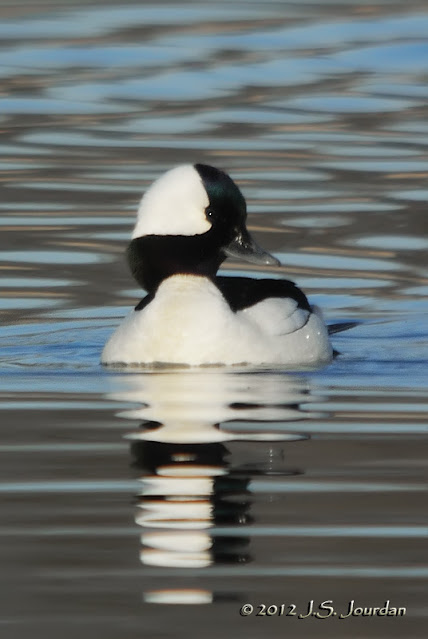






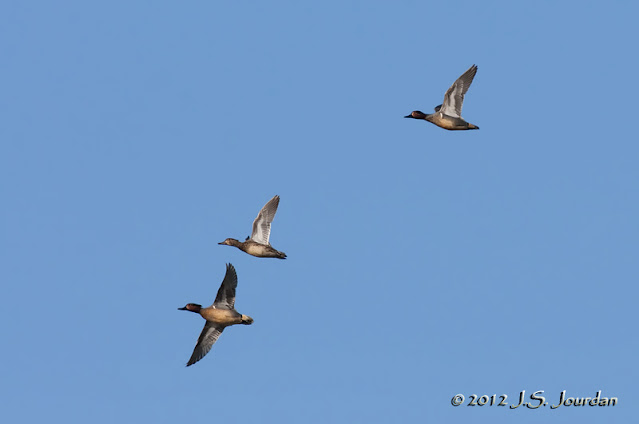
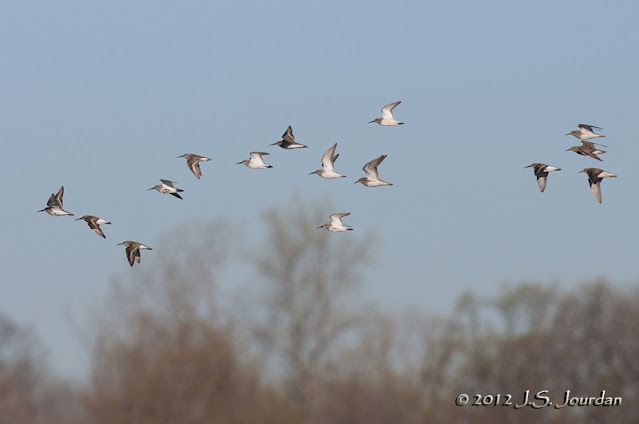









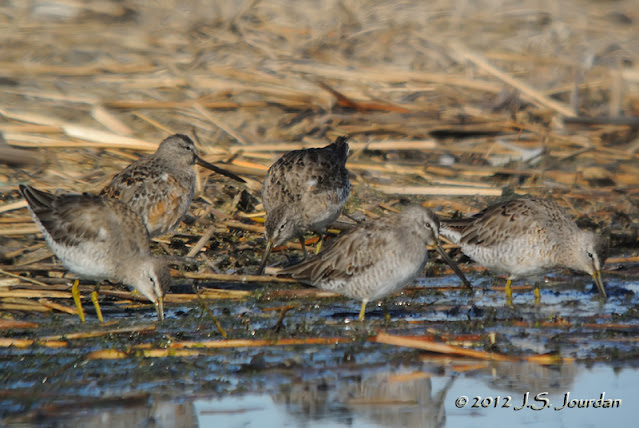





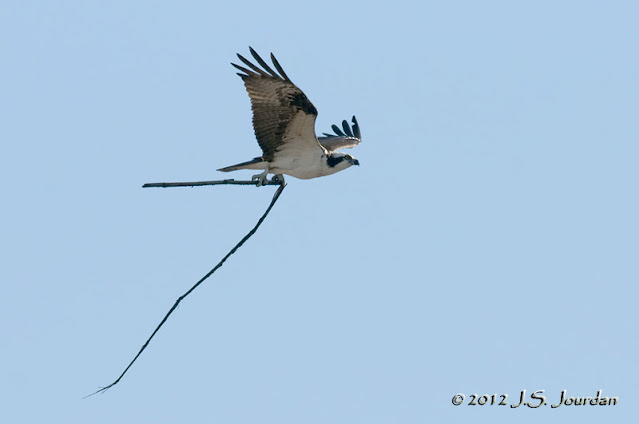
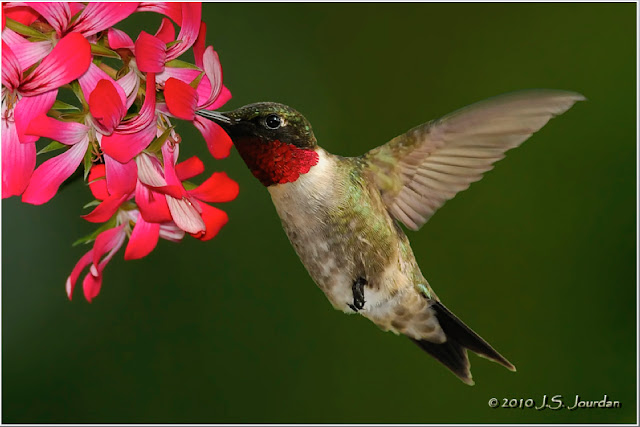
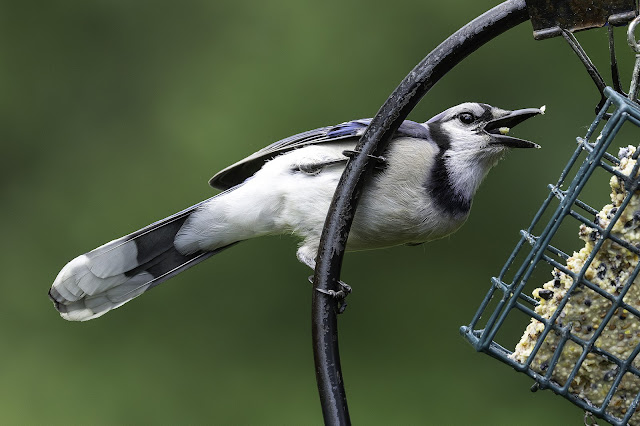



Hi Jerry! We were there on Saturday as well and saw many of the species you listed. We heard the Bittern, but missed the night heron. Nice photos, we enjoyed the recap of our day!
ReplyDeleteCindi